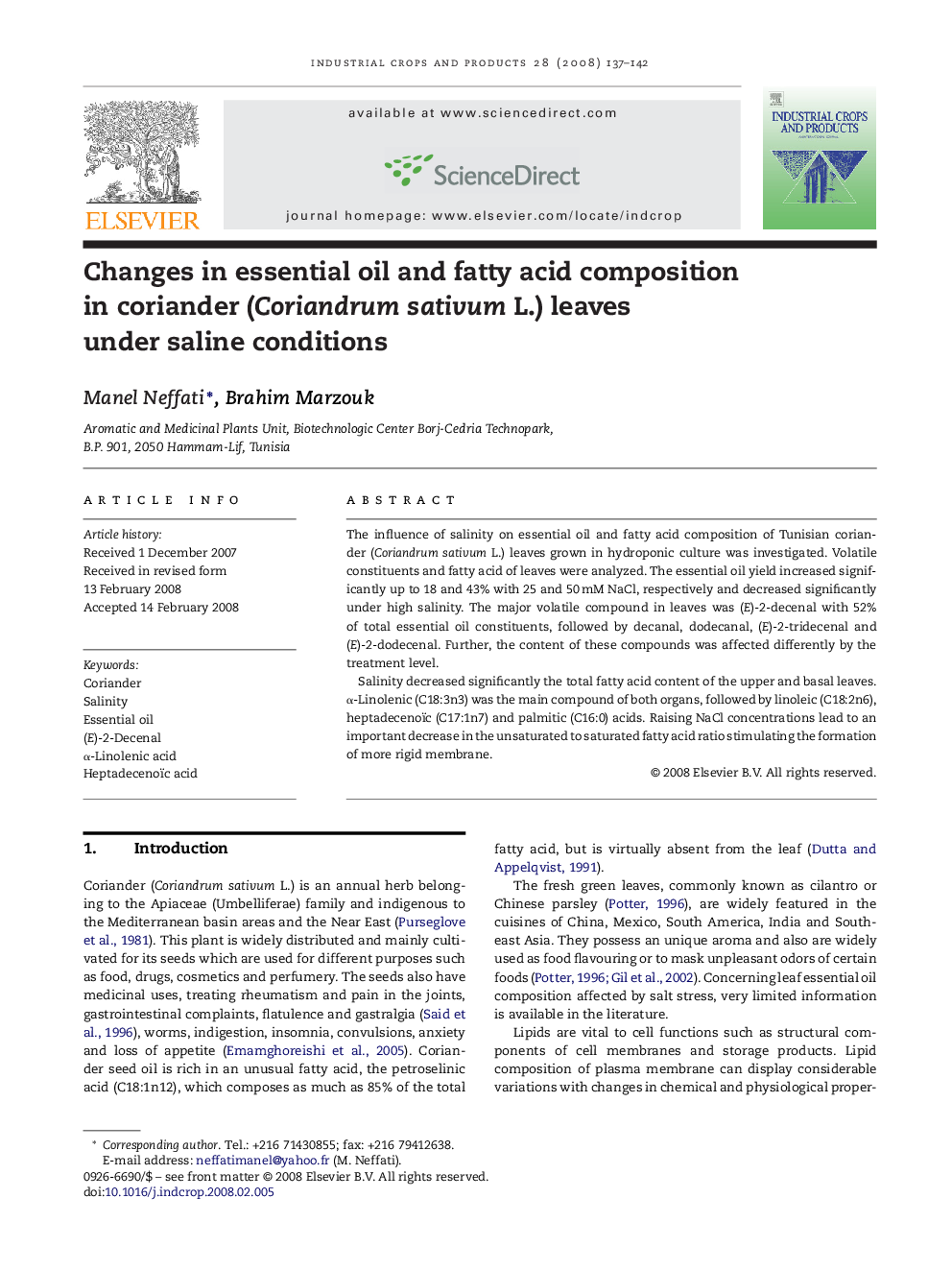| Article ID | Journal | Published Year | Pages | File Type |
|---|---|---|---|---|
| 4515047 | Industrial Crops and Products | 2008 | 6 Pages |
The influence of salinity on essential oil and fatty acid composition of Tunisian coriander (Coriandrum sativum L.) leaves grown in hydroponic culture was investigated. Volatile constituents and fatty acid of leaves were analyzed. The essential oil yield increased significantly up to 18 and 43% with 25 and 50 mM NaCl, respectively and decreased significantly under high salinity. The major volatile compound in leaves was (E)-2-decenal with 52% of total essential oil constituents, followed by decanal, dodecanal, (E)-2-tridecenal and (E)-2-dodecenal. Further, the content of these compounds was affected differently by the treatment level.Salinity decreased significantly the total fatty acid content of the upper and basal leaves. α-Linolenic (C18:3n3) was the main compound of both organs, followed by linoleic (C18:2n6), heptadecenoïc (C17:1n7) and palmitic (C16:0) acids. Raising NaCl concentrations lead to an important decrease in the unsaturated to saturated fatty acid ratio stimulating the formation of more rigid membrane.
